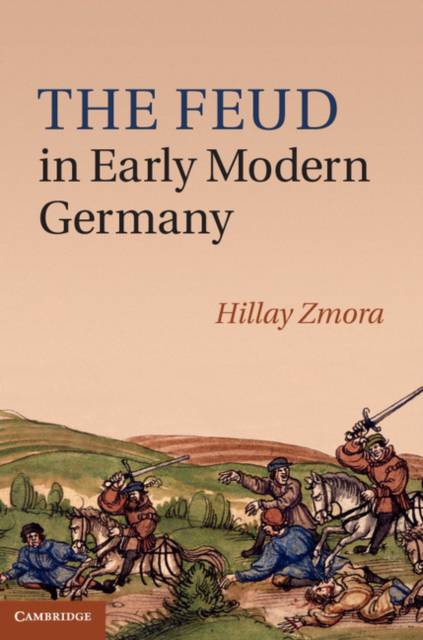
Door een staking bij bpost kan je online bestelling op dit moment iets langer onderweg zijn dan voorzien. Dringend iets nodig? Onze winkels ontvangen jou met open armen!
- Afhalen na 1 uur in een winkel met voorraad
- Gratis thuislevering in België vanaf € 30
- Ruim aanbod met 7 miljoen producten
Door een staking bij bpost kan je online bestelling op dit moment iets langer onderweg zijn dan voorzien. Dringend iets nodig? Onze winkels ontvangen jou met open armen!
- Afhalen na 1 uur in een winkel met voorraad
- Gratis thuislevering in België vanaf € 30
- Ruim aanbod met 7 miljoen producten
Zoeken
Omschrijving
The practice of feuding amongst noblemen and princes represented a substantial threat to law and order, yet it was widely accepted and deeply embedded in late medieval and early modern German society. Hillay Zmora offers a new interpretation of this violent social practice, which has long confounded historians and social scientists. His ground-breaking study explains feud violence in its social context, demonstrating that, paradoxically, nobles feuded mostly not against strangers but with neighbours, relatives and their feudal lords. Focusing on the ambivalent relationships and symbolic communication between nobles, this study explores how values, norms and moral sentiments linked to reciprocity provided the most powerful incentives to engage in violent conflict. It will be essential reading for historians, anthropologists, psychologists and anyone who seeks to understand the link between culture, moral systems and endemic violence.
Specificaties
Betrokkenen
- Auteur(s):
- Uitgeverij:
Inhoud
- Aantal bladzijden:
- 226
- Taal:
- Engels
Eigenschappen
- Productcode (EAN):
- 9780521112512
- Verschijningsdatum:
- 31/10/2011
- Uitvoering:
- Hardcover
- Formaat:
- Ongenaaid / garenloos gebonden
- Afmetingen:
- 155 mm x 231 mm
- Gewicht:
- 476 g

Alleen bij Standaard Boekhandel
+ 345 punten op je klantenkaart van Standaard Boekhandel
Beoordelingen
We publiceren alleen reviews die voldoen aan de voorwaarden voor reviews. Bekijk onze voorwaarden voor reviews.











